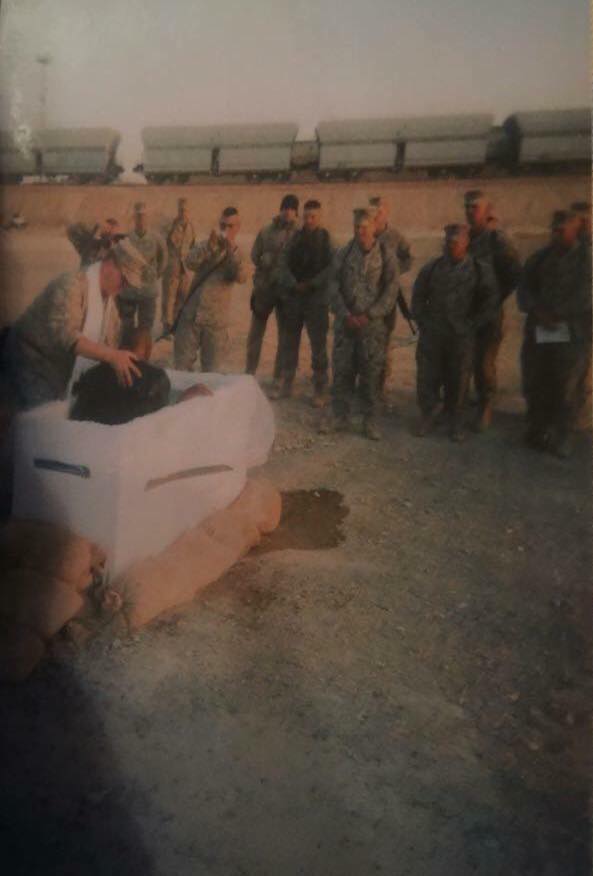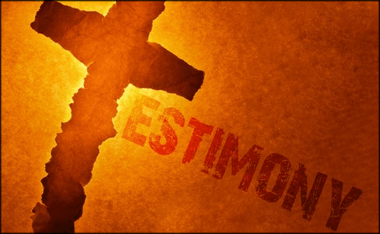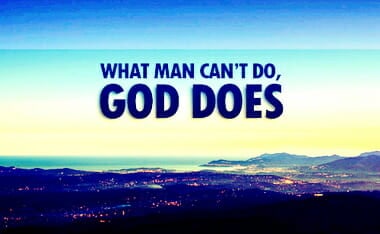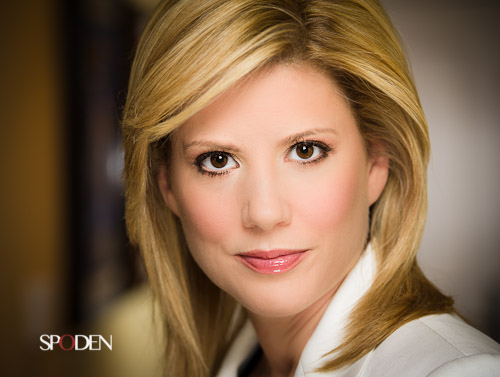
This is an excerpt from Holly’s book, linked below, and you can access her thinking on matters of faith more-so at her blog, Hieropraxis, which is the continuing thoughts of someone Christ went back for. I will also include (below) an interview about her journey from atheism to belief. (Her presentation on “academic faith” was also posted as a Serious Saturday lecture.) Enjoy… and for the curious, one should read about how God called Kirsten Powers through apologetics as well. One should keep in mind it isn’t the Christian using his or her intellect to “best” someone in argument, but God meeting people where they are at, and the Holy Spirit quickens people’s hearts to the knowledge of God in different way, Holly is an example of this.
“I suspect that most of the individuals who have religious faith are content with blind faith. They feel no obligation to understand what they believe. They may even wish not to have their beliefs disturbed by thought. But if God in whom they believe created them with intellectual and rational powers, that imposes upon them the duty to try to understand the creed of their religion. Not to do so is to verge on superstition.”
Morimer J. Adler, “A Philosopher’s Religious Faith,” in, Kelly James Clark, ed., Philosophers Who Believe: The Spiritual Journeys of 11 Leading Thinkers (Downers Grove, IL: InterVarsity Press, 1993), 207.
(Take note as well that God invigorated her mind towards Christ via Christian poems/literature [like John Donne] — her degree is in literature, so she has a passion for this beauty in word and really a need in all of us for objective meaning and beauty in life.)
Here is the excerpt:
IMPORTANT THINGS CAN START in odd places and at seemingly inauspicious times. It was early March, and I was in Reno for a Division II North American Cup fencing tournament—a big event for me. 
I started the day in great confidence, feeling ready for a breakthrough performance. I was sure I’d make it to the semifinals at least, and not-so-secretly I anticipated winning the whole thing. Let us just say things did not go as planned. I fenced abysmally in the first round of pools (as my coach succinctly, and factually, put it, “You did everything wrong”). Then, instead of making a spectacular comeback in the direct-elimination round, I fenced horribly and lost the very first bout. It was the end of the line for me; an ignominious end to my high hopes. My coach studiously ignored me until I stopped crying; when I had pulled myself together, we had our debriefing conversation, analyzing what had gone wrong and why. I was glum but I realized that if Josh was talking about what we would address in the next series of lessons, at least it meant he wasn’t going to kick me to the curb for one bad performance.
Still, I felt deflated. Debrief completed, I slunk off to my hotel room, tail between my legs.
An hour or so later I wandered back down to the venue and watched the women’s sabre finals (where I’d hoped to have been! sob). I ran into Josh and Heidi, and they invited me to dinner. Their company was a welcome distraction from brooding over my lousy performance, and the conversation was sufficiently interesting to continue past our meal, so we found a place to chat in the casino coffee shop. Slot machines stood in ranks on either side, flashing and jingling; the casino traffic ebbed and flowed around us. This was Reno, where people gamble 24/7: late as it became, the lights stayed on and no tired barista came to shoo us out. And that was a good thing, because the three of us stayed there, in conversation, for hours—talking about God.
Its a curious thing, how God works. If we’d been in a normal cafe that had to close up at nine or ten p.m., we might never have gotten where we did in our conversation. If I had done well in the tournament, we’d probably just have talked about fencing. But considering how disconsolate I was about my performance that day, I was glad to talk about anything but fencing. Movies we’d seen. Favorite books. As it turned out, we were all fans of C. S. Lewis’s Chronicles of Narnia.
“I’ve read a little bit of Lewis’s other stuff,” I said. “I’m really annoyed with him. He says Jesus is either a liar, a lunatic, or Lord. But he’s leaving out that we can respect Jesus’ teachings, without the religion part.”
“Well,” Josh said, “actually . . .”
And the conversation went on from there.
We talked about whether it was possible to know that there was something beyond death. We talked about where morality comes from. We talked about the idea of a First Cause, a creator of the universe. At midnight my roommate called to see if I was OK, since I’m not the type to stay out late. I assured her I was fine, wished her a good night, and went back to the conversation.
I’d had interesting discussions before, but this one was different right from the start. I felt completely awake, alert, and more than a little nervous, like I was handling dynamite. But then, I was, wasn’t I? All my adult life, if I discussed religion at all, it was to dismiss it as nonsense. Yet there I was, risking honesty about what I believed but had never questioned before—and genuinely listening to ideas that I’d never heard before. Why was this conversation different?
At the time, I just knew that I felt safe. I knew that I was respected, that neither Josh nor Heidi would try to convert me, so I could let my guard down like I’d never dared to before.
They offered no Bible quotes. No sharing of how ‘God had worked in their lives. No appeal to my happiness or peace of mind. What, then? Philosophy. Ideas. Dialogue.
The upshot was that, right there in that noisy, neon-glittering casino coffee shop, I experienced a radical turnaround from my previous perspective on all things God-related. As yet I didn’t know if the idea of God were true or false, but I discovered that “faith” wasn’t anything like I thought it was. It could be based on Reason.
I swiftly discovered that Josh knew what he was talking about: whenever I challenged a point, he had solid information and clear reasoning to back up what he’d said. What’s more, he respected my intellect by not letting me get away with vague generalizations or unchallenged assumptions. That was refreshing. It was, in fact, the same kind of give-and-take as in my fencing lessons: he knew what I was capable of, and so he wouldn’t permit lazy thinking any more than he’d permit sloppy technique.
But also—again, just as in my fencing lessons—he challenged me exactly at the limits of my comfort zone, where I had enough to work with that I wasn’t lost, yet was stretching myself past where I was really comfortable.
(A fencing lesson, working on practicing strong attacks. He’s making me repeat the attack over and over again, with corrections, till I get it right. My leg muscles are burning-I’m out of breath-he pauses. Him: “Tired?” Me: [gasp] “Yes” [gasp]. Him: “Good. Back to work. En garde.”)
As we wrestled with these ideas, Josh answered my questions-not the questions that an evangelist might think I ought to have, but the ones I actually did have.
Though a lot of Christians probably haven’t thought of it that way, talking about Jesus as Savior involves many assumptions—for instance, that you already believe in a Creator, not just an impersonal force but an actual Person, who is wholly good and who interacts with humanity. Miss one of those links, and the whole thing falls apart.
I needed to start at square one. For me, the term “God” was heavily loaded, so we used a safer term—the neutral, philosophical “First Cause”-and began with a basic question: can we even know, reasonably, that there is a First Cause of the universe? I’d always held to the belief that the universe just “happened.” I knew that I couldn’t back up that assertion, but I also thought that the religious take was simply to assert the opposite. I say no God; you say God; great, we’re done.
Except that it seemed like Josh had some actual reasons for his claim, some actual arguments to make. That was a totally new idea.
Sensing my interest, he laid out a few of the cosmological arguments for the existence of God. Here I can safely say that what’s helpful varies from person to person. The mere thought of philosophical apologetics might cause some people’s eyes to glaze over. On the other hand, for me it was like asking for a glass of water and getting champagne instead. I was stunned by the very concept that there were rational arguments for the existence of God. Never mind whether I agreed with the arguments or not, the simple fact that Josh said, “Let’s reason this out” rather than “You have to take it on faith” made me want to hear more.
What’s more I saw that these arguments made frighteningly good sense. I could see, even right there in that coffee shop in the casino in Reno, Nevada, that they made more sense than I wanted to admit.
Holly Ordway, Not God’s Type: A Rational Academic Finds Radical Faith (Chicago, IL: Moody, 2010), 43-47. (Emphasis Added)
(Via Apologetics 315) Today’s interview is with Holly Ordway, professor of English and literature and author of Not God’s Type: A Rational Academic Finds a Radical Faith. She talks about her background as an atheist, her encounters with Christians in the past, the influence of literature and poetry, personal influences from others, looking at arguments for the existence of God, counter-arguments against God, psychological explanations, her encounter with Christ, her advice to skeptics and her advice to Christian apologists.












